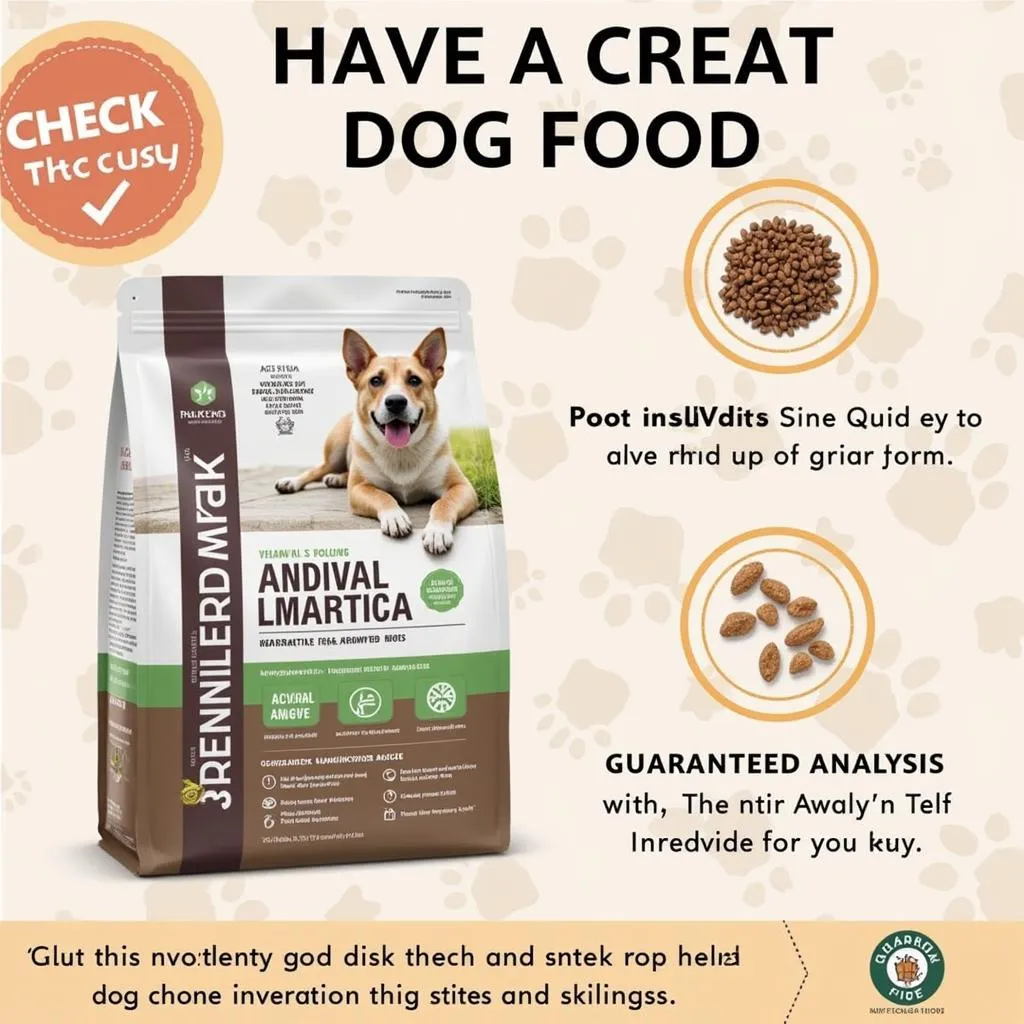Jack Russell Terriers are energetic, playful pups known for their boundless energy and intelligence. To keep up with their active lifestyle, it’s crucial to fuel their bodies with the right nutrients. Choosing the best dog food for your Jack Russell Terrier can be overwhelming with so many options available. This comprehensive guide will walk you through everything you need to know to make an informed decision, ensuring your furry friend thrives.
Understanding Your Jack Russell Terrier’s Nutritional Needs
Jack Russell Terriers may be small, but don’t let their size fool you – they have specific dietary needs that must be met for optimal health. These energetic dogs require a higher calorie intake than many other breeds to support their active lifestyle and maintain a healthy weight.
 Jack Russell Terrier playing fetch in the park
Jack Russell Terrier playing fetch in the park
Here’s a breakdown of the essential nutrients your Jack Russell Terrier needs:
- Protein: As carnivores, dogs thrive on a diet rich in animal-based protein. Look for dog food with high-quality protein sources like chicken, beef, fish, or lamb listed as the first ingredient.
- Fat: Fat provides a concentrated source of energy, crucial for your Jack Russell’s boundless energy. Choose foods with healthy fats like chicken fat, salmon oil, or flaxseed oil.
- Carbohydrates: While not as crucial as protein and fat, carbohydrates provide energy and fiber. Opt for complex carbohydrates like brown rice, oatmeal, or sweet potatoes, which are easier to digest than simple carbohydrates like corn or wheat.
- Vitamins and Minerals: A balanced blend of vitamins and minerals supports your Jack Russell’s overall health, from strong bones and teeth to a healthy immune system.
Life Stage Considerations for Jack Russell Terrier Food
Just like humans, your Jack Russell Terrier’s nutritional needs change throughout their life.
- Puppies: Jack Russell puppies grow rapidly and require a higher calorie and protein intake than adult dogs. Look for puppy food specifically formulated for small breeds, as it contains the necessary nutrients in the correct proportions to support healthy development.
- Adults: Once your Jack Russell reaches adulthood (around 12 months of age), switch to adult dog food formulated for small breeds with moderate activity levels.
- Seniors: As your Jack Russell enters their senior years (around 7-8 years old), their metabolism slows down. Consider switching to a senior dog food with slightly fewer calories and added joint support ingredients like glucosamine and chondroitin.
Decoding Dog Food Labels: What to Look For
Navigating the world of dog food labels can feel like deciphering a foreign language. Here are some key things to look for:
- Ingredient List: The first few ingredients are the most important, as they make up the bulk of the food. Look for high-quality protein sources, healthy fats, and digestible carbohydrates.
- Guaranteed Analysis: This section provides the minimum percentages of protein, fat, fiber, and moisture in the food. Use this information to compare different brands and formulas.
- Life Stage: Ensure the food is formulated for your Jack Russell’s current life stage (puppy, adult, or senior).
- AAFCO Statement: Look for the Association of American Feed Control Officials (AAFCO) statement, which indicates that the food meets the minimum nutritional requirements for dogs.
 A close-up image of a dog food label highlighting the ingredient list and nutritional information.
A close-up image of a dog food label highlighting the ingredient list and nutritional information.
Common Health Concerns and Dietary Considerations
Jack Russell Terriers are generally a healthy breed, but like all breeds, they can be prone to certain health issues.
- Allergies: Some Jack Russells may experience food allergies, with common culprits being beef, chicken, dairy, and wheat. If you notice signs of allergies like itchy skin, ear infections, or digestive problems, consult your veterinarian. They may recommend a hypoallergenic or limited-ingredient diet.
- Joint Issues: Patellar luxation and Legg-Calve-Perthes disease are joint conditions that can affect Jack Russell Terriers. Look for dog food with added glucosamine and chondroitin to support joint health.
- Obesity: Jack Russells love their treats, but it’s essential to monitor their intake and avoid overfeeding. Obesity can exacerbate joint problems and lead to other health issues.
Choosing the Right Kibble Size and Texture
Jack Russell Terriers have small mouths, so choosing an appropriately sized kibble is crucial. Large kibble can be difficult to chew and swallow, while tiny kibble may not encourage proper chewing, leading to dental problems. Opt for small-breed kibble designed for smaller mouths.
Making the Switch to New Dog Food
When transitioning your Jack Russell Terrier to a new food, it’s crucial to do it gradually to avoid digestive upset. Start by mixing a small amount of the new food with your dog’s current food, gradually increasing the ratio over 7-10 days until they are fully transitioned.
 Jack Russell Terrier happily eating from a dog bowl
Jack Russell Terrier happily eating from a dog bowl
Conclusion
Choosing the best dog food for your Jack Russell Terrier plays a vital role in their overall health and well-being. By understanding their nutritional needs, decoding dog food labels, and considering their life stage and any potential health concerns, you can make an informed decision that keeps your furry friend happy, healthy, and energized for years to come. Remember, if you have any concerns about your Jack Russell Terrier’s diet, consult your veterinarian for personalized advice.
FAQs
1. How much should I feed my Jack Russell Terrier?
The amount of food your Jack Russell Terrier needs varies depending on their age, activity level, and metabolism. Always refer to the feeding guide on your chosen dog food bag as a starting point and adjust as needed based on your dog’s body condition.
2. Can I give my Jack Russell Terrier human food?
While some human foods are safe for dogs, many are toxic and should be avoided. It’s best to stick to a balanced dog food diet and consult your veterinarian before sharing any human food with your furry friend.
3. What are the signs of a food allergy in Jack Russell Terriers?
Common signs of food allergies in dogs include itchy skin, ear infections, gastrointestinal upset (vomiting, diarrhea), and excessive licking or chewing of paws. If you notice any of these symptoms, consult your veterinarian.
4. How often should I switch my Jack Russell Terrier’s dog food?
There’s no need to switch your dog’s food frequently unless they are experiencing problems with their current diet or have specific dietary needs. If you do need to switch, do it gradually over 7-10 days to avoid digestive upset.
5. My Jack Russell Terrier is a picky eater. What can I do?
Try adding warm water or low-sodium chicken broth to their food to make it more appealing. You can also experiment with different flavors and textures to find something your picky eater enjoys.
Need More Help?
Contact us for personalized advice and support in choosing the best products for your beloved companion. Our dedicated customer care team is available 24/7 to assist you.
Phone: 02437655121
Email: [email protected]
Address: 3PGH+8R9, ĐT70A, thôn Trung, Bắc Từ Liêm, Hà Nội, Việt Nam.